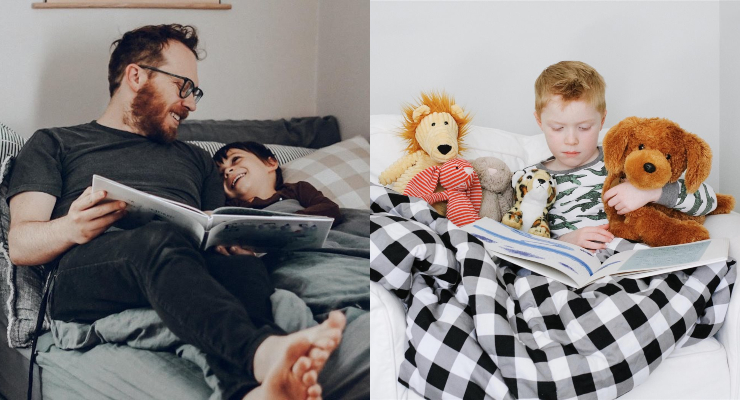
The fact is, most people don’t get enough sleep. Getting the optimal amount of sleep each night not only leaves you feeling rested but has a profound impact on your overall health — affecting immunity, mental sharpness, weight management and much more†.
If you find you’re struggling to get to sleep, consider supplementing with melatonin, a sleep aid that helps you get better sleep† — enabling you to get the healthy rest you need. Read on to learn five things you can do to prepare for a good night’s sleep so that you and your family can feel rested, focused and ready for the day ahead.
1. Exercise
No matter your age, physical activity has been proven to help you sleep better at night. Exercising in the morning can help reset your body’s clock so you’re sleepier at bedtime. However, keep in mind that strenuous exercise right before bedtime can make it harder to settle down for a good night’s rest.
2. Wind down early
When your mind, body and bedtime are out of synch, you need to give yourself more time to slow down and get ready for sleep. Screens flood your brain with the same serotonin-inducing light as the sun that wakes you up in the morning. Turn them off at least 30 minutes before bedtime so your brain can start creating melatonin and get your body ready for sleep.
Consider replacing those gadgets with a book, or destress with soothing music, meditation, a warm bath, or any other activity you find relaxing. This is especially important for children, who can be easily overstimulated by electronic entertainment, so avoid leaving them in the bedroom too.
3. Put a cork in it!
Alcohol makes you drowsy, but it can degrade the quality of your sleep. Skip that glass of wine. Instead try to eat sleep-friendly foods such as sweet potatoes, turkey and broccoli.
4. Create an ideal bedroom environment
For the best night’s sleep, most people need cool, quiet rooms that are as dark as possible. A sound machine can help soothe you to sleep and drown out outside noises. The longer days delay the natural production of melatonin. Blackout shades can help.
5. Consider taking a melatonin supplement
If you or your child are having trouble sleeping, consider a low-dose melatonin supplement such as Natrol Melatonin and Kids Melatonin.
Melatonin can help you overcome sleep disruptions by resetting your sleep-wake cycle.† It is pediatrician-recommended* and 100 percent drug-free. To find Natrol Melatonin in a store near you, visit Natrol.com.
Whether you’re coping with symptoms of jet lag from a trip, or just have occasional difficulty relaxing and getting to sleep, remember all of these tips can help you get the rest you need to feel and be your best this summer.
| FDA Disclaimer:
†These statements have not been evaluated by the Food and Drug Administration. This product is not intended to diagnose, treat, cure or prevent any disease. |
*Recommended by The Canadian Paediatric Society












